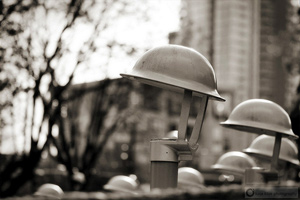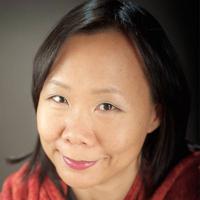
When I was in Grade 1, I wanted to invite all the girls in my class to my birthday party. My mother refused to let me invite Naomi, a friend who happened to be of Japanese descent. Upset and confused, I asked her why. She sat me down, and for the first time told me of her childhood memories of the Japanese invasion of Hong Kong.
The Imperial Japanese soldiers had kicked her large family out of their home, forcing them to relocate from place to place, and eventually become dispersed. Living in constant fear, her family was often forced to scrounge for food. She mentioned the infamous Rape of Nanking, where over 190,000 Chinese civilians were massacred, an estimated 20,000 girls and women were brutally raped, and homes and businesses looted and burned by Imperial Japanese soldiers over a six week period.
I went back to school the next day, troubled and pensive. My teacher, Miss Burton, called me over to her desk to ask what was wrong. After listening to my story attentively, Miss Burton looked me in the eye. "Tell your mother," she said firmly, "that the war is over." Relieved, I ran home after school and jubilantly told my mother, "Miss Burton says the war is over!"
After a long pause, my mother quietly agreed to let me invite Naomi to the party. It was a turning point. Although she continued to bring up Japanese war crimes, the foundation of her longstanding prejudice had begun to dissolve.
She started focusing on news reports of more current American war atrocities in Vietnam, a country where her grandfather and father had lived and worked. A few years later, she took private flower arranging lessons from a Japanese-Canadian woman, and then decided to take a few Japanese language lessons. One day, she took the family out for sushi for the first time, more than a decade before it became popular in Vancouver. She even arranged for our family to visit Tokyo briefly on our way to Hong Kong.
From that experience, I came to understand two things: the extent of war's devastating toll on civilians, and also the power of the right words to bring about change.
Beyond Flanders fields
At Remembrance Day ceremonies at school and afterward, I would always think about both military and civilian casualties of war -- particularly those soldiers who tried to defend and protect civilians from invading armies, as well as the mass numbers of civilian victims across the globe. In the First World War, it is estimated that there were approximately 10 million military deaths and 7 million civilian deaths. Of the total deaths during the Second World War, it is estimated that 22 to 25 million were military (including deaths of about 5 million prisoners of war) and that 40 to 52 million were civilians (including 13 to 20 million from war-related disease and famine).
From early on, it struck me how significant poetry has been in commemorating the war dead during Remembrance Day events. Most well known, of course, is Canadian Dr. John McCrae's poem, "In Flanders Fields," from which the widely recognized emblem of the red poppy is taken. The Act of Remembrance that is recited at most ceremonies is taken from the middle of a seven-stanza poem by Laurence Binyon.
What also comes to mind in the days leading up to Remembrance Day are the many less well-known yet extraordinary poems written about civilian casualties of war -- for example, Polish poet Anna Swirszczynska's poems about the civilian resistance in Warsaw, "The Last Polish Uprising" and "Building the Barricade."
There are many powerful and harrowing poems about the Holocaust, such as Auschwitz-survivor Primo Levi's "Shema." Polish-born poet Tadeusz Rosewicz joined the resistance during the Second World War and wrote of the horrors committed against civilians by the Nazis. One short, stark yet tender poem "Massacre of the Boys" employs the voices of frightened children taken to be killed in the gas chambers. Another of his poems, "Pigtail" is a similarly distilled depiction of the effects of war, although in this case using the central image of the hair shaven from women prisoners in concentration camps.
There are excellent poems about the U.S. bombing of Hiroshima and Nagasaki; for example, American poet Carolyn Forche's "Testimony of Light." Turkish poet Nazim Hikmet's poem "I come and stand at every door," also known as "Hiroshima Child," is written in the voice of a seven-year-old girl, a victim of the Hiroshima bombing who calls for peace after her death. The poem became popular as a song sung by a variety of artists, including Pete Seeger, Paul Robeson, and The Byrds. Local poet Cathy Stonehouse has a sequence of poems about the atomic bombing in Hiroshima in her latest book of poetry, Grace Shiver. American poet, Victoria Chang has written a few poems about the Nanking massacre in her book, Salvinia Molesta.
One of my favourite poems about the effects of war on civilians is Israeli poet Yehuda Amichai's poem, "Diameter of a Bomb," which depicts the unforeseen consequences or repercussions that can arise from the deaths and injuries caused to ordinary people by any single bomb. Another favourite is Canadian poet Steven Heighton's poem about the infamous My Lai massacre during the Vietnam War, set out below.
A superb place to find acclaimed international poetry on the theme of the effects of war is Carolyn Forché's anthology, Against Forgetting: Twentieth-Century Poetry of Witness, which gathers poetry from 140 different poets spanning over five continents and covers both world wars and the Korean and Vietnam wars, among others. There are also many strong Canadian poems on the theme of war and its aftermath in the anthology Crossing Lines: Poets Who Came to Canada in the Vietnam War Era, edited by Allan Briesmaster and Steven Michael Berzensky. The Canadian Poets Against War website has scores of poems about war and peace in its archives, including a few of my past poems about Remembrance Day, and the wars in Iraq and Afghanistan.
Recall the intent of remembrance
Perhaps one or more of these poems, together with articles and books written on the subject, might cumulatively make some difference -- word by word, reader by reader. Of course, it's hard to be optimistic when hearing about the huge midnight launches in several cities across the world this week for Activision Blizzard's new video-game, Call of Duty: Modern Warfare 3. According to the CBC, "the game, the eighth in the series, will add to the Call of Duty franchise's already monstrous take of 100 million units sold and more than $5 billion in revenue earned."
Some of my friends have felt conflicted about Remembrance Day, concerned that it glorifies and promotes war, and fosters the recruitment of more soldiers to engage in international conflicts that are fueled by corporate, political or economic interests that in the end have little connection to the rhetoric of justice and human rights used to justify military intervention.
But in light of the popular mass appeal of increasingly violent and stimulating video games that dehumanize the "enemy," desensitize boys and men to violence, and turn war into a form of entertainment that has no relation to the reality and scope of human suffering, I wonder whether it isn't more crucial now than ever to commemorate Remembrance Day in terms of the original intention of marking the 1918 Armistice -- the significance of a cessation of hostilities between nations after a long series of brutal and often senseless battles, and the time to consider and mourn the monumental and often meaningless loss of life of both combatants and civilians.
And now, a poem
ANOTHER OF THE JUST: WARRANT OFFICER HUGH THOMPSON, MY LAI, 1968
By Steven Heighton
Years later, sober, or from inside the snub barrel
of a shot glass, you spoke out about it softly,
not reticent but baffled, still: how Calley
and his men appeared below you, butchering
the villagers, and down you banked your recon
chopper to light between him and the enemy
women, toddlers, crones. Ordered your door-gunners
to fire on any comrades who'd resume that riot
of infanticide, mob rape -- and then, from a midden
of twitching limbs, your crew pried free a gore-smeared child
and bore him beyond harm, as if to save was also labour
for male arms, as if love were the one flag you'd salute.
(Not quite -- you were a keen recruit, proudly hailed patriot.)
You're gone now, cancer, my sad captain, while Calley --
a few years' house arrest for four hundred dead -- lives
in Atlanta, retired. Don't do something in hope of reward,
you said, it might never come. Just lynch mail, roadkill,
razored strays splayed at your door. Still, in the Agent
Orange skies, your archangelic contrail lingers -- you
at the flightstick, bearing the one child. Forget the pen,
forget the sword: the strongest hands hold neither, but they hold.
From Patient Frame by Steven Heighton (Toronto: House of Anansi Press, 2010). Reprinted with permission of the author and the House of Anansi Press. ![]()
















Tyee Commenting Guidelines
Comments that violate guidelines risk being deleted, and violations may result in a temporary or permanent user ban. Maintain the spirit of good conversation to stay in the discussion.
*Please note The Tyee is not a forum for spreading misinformation about COVID-19, denying its existence or minimizing its risk to public health.
Do:
Do not: